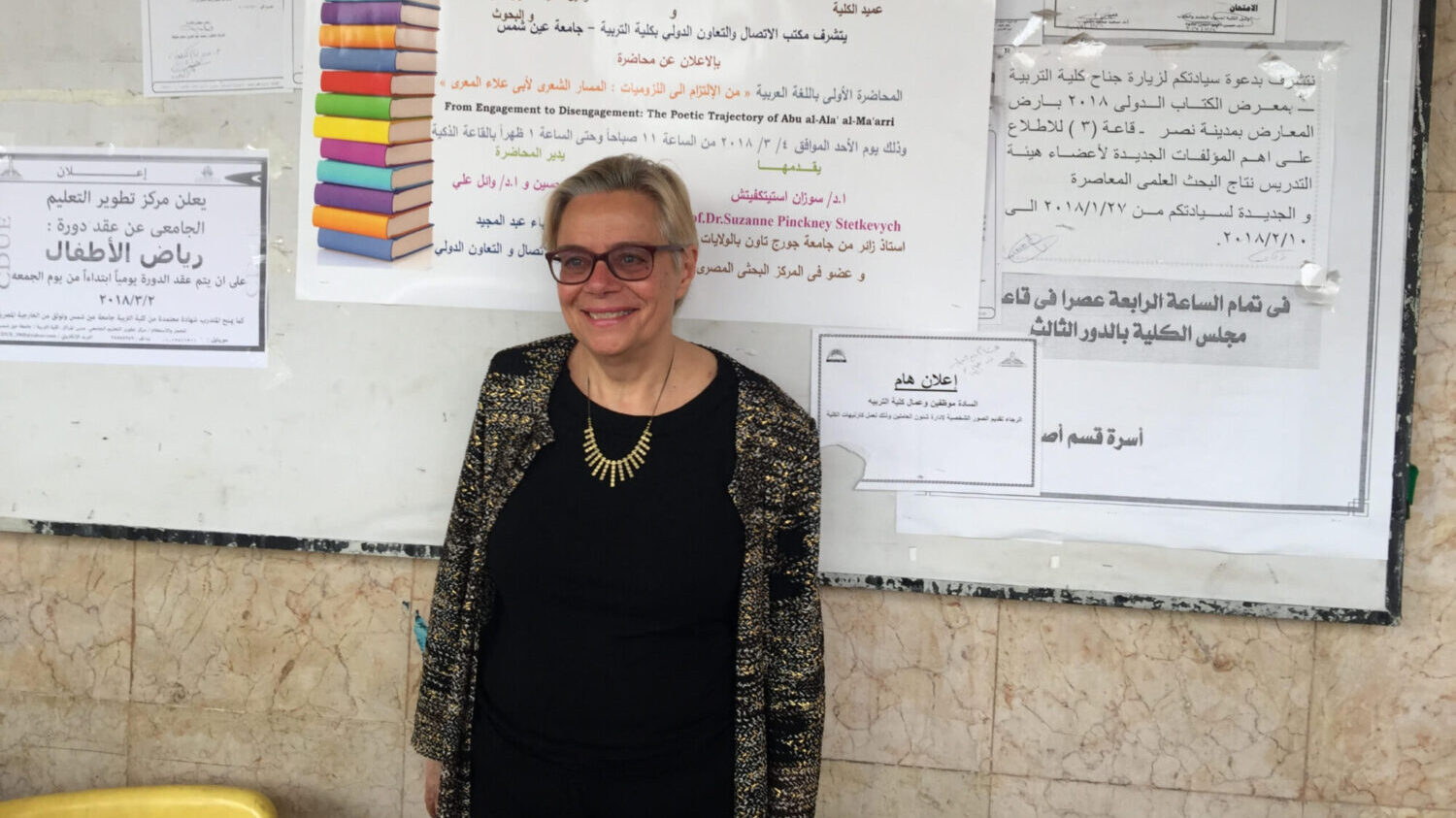Georgetown Professor Wins Prestigious Prize for the Study of Classical Arabic Poetry
A Georgetown professor is making international waves for her dedicated study of Classical Arabic poetry.
Suzanne Stetkevych, Sultan Qaboos bin Said Professor of Arabic and Islamic Studies in the Department of Arabic and Islamic Studies, is a 2022 King Faisal Prize laureate, a monumental achievement for a Western academic. The award for Arabic Language and Literature, of which Stetkevych is a recipient, has only been given to a single American scholar before this year. Stetkevych is the first female scholar to win the award since it was awarded to Wadad Kadi and Aisha ‘Abd al-Rahman (Bint al-Shati’) in 1994.
Bestowed by the King Faisal Foundation, the award seeks to “benefit Muslims in their present and future, inspire them to participate in all aspects of civilization, as well as enrich human knowledge and develop mankind.” For Stetkevych, who specializes in Classical Arabic poetry, the award is a welcome recognition for a lifetime of work in a field marked by its relative obscurity in the United States.
“For me, receiving the King Faisal Prize in Arabic Language and Literature represents, above all, the recognition that Classical Arabic poetry is part of our universal human heritage and that the study of Classical Arabic poetry is a shared humanistic endeavor,” says Stetkevych. “I am very honored that my Arab colleagues have supported me for this award.”
Established in 1976, the prize commemorates the late King Faisal bin Abdulaziz and is considered one of the most prestigious international awards for scholars and scientists, especially within the Muslim community. Awardees are honored in five categories: Service to Islam, Islamic Studies, Arabic Language and Literature, Medicine and Science. To date, there have been 275 laureates from 43 countries.
Through her work, Stetkevych has plumbed the depths of classical poetry with a variety of tools, which has led to a novel and distinct methodology for the study of Arabic literature.
“As with virtue, a life spent on Classical Arabic poetry is its own reward. However, it is won only after years of toiling in obscurity in an often neglected and sometimes disparaged field. Many years go to mastering the Arabic language and exploring its rich 1500-year poetic tradition, which together with the Qur’an forms the foundation of Arabo-Islamic civilization,” says Stetkevych. “There is joy and satisfaction in decoding the distinctly Arabic lyric-heroic images and metaphors for loss, quest and belonging: the abandoned campsite, the desert journey by camel, the poet’s steed in battle or hunt, and ensuing celebration and feast and to uncovering the ‘grammar’ of the Arabic poetic forms.”
The King Faisal Foundation plans to hold the 2022 award ceremonies in Riyadh in late March.
